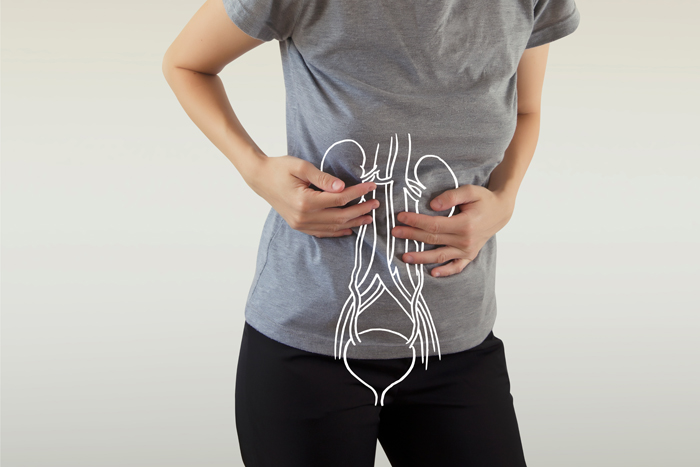Kidney Disease Treatment & Diagnostics in Sadashiv Peth, Pune
Kidney Disease
Kidney disease develops when the kidneys aren’t able to work properly due to getting damaged from conditions such as high blood pressure, diabetes, and other chronic illnesses.
What is Kidney Disease?
When the kidneys have become damaged and aren’t able to filter blood as effectively as they should, it indicates kidney disease. This leads to a build-up of waste products as well as fluid in the body. This can cause a variety of symptoms and if the damage to the kidneys is worse, it can become a life-threatening situation.

What Are the Symptoms of Kidney Disease?
Kidney disease can go undiagnosed for a long time before symptoms start to appear. The symptoms mentioned below are early indicators of kidney disease -
- Trouble sleeping
- Fatigue
- Puffy eyes
- Muscle cramps
- Frequent urination, especially during the night
- Difficulty focusing
- Poor appetite
- Swollen ankles or feet
- Scaly or dry skin
If kidney disease is progressing towards kidney failure, severe symptoms may occur, such as -
- Vomiting
- Changes in urine output
- Anemia
- Hyperkalemia
- Nausea
- Loss of appetite
- Fluid retention
- Decrease in libido
- Inflammation of the pericardium
What Are the Causes of Kidney Disease?
- Causes of kidney disease depend on the type of kidney disease. Acute kidney disease - Acute kidney disease is when the kidneys stop working suddenly. This can happen due to urine getting backed up in the kidneys, the kidneys getting damaged directly, or reduced blood flows to the kidneys. These may occur due to several reasons such as blood loss due to an accident, going into blood loss due to sepsis, having an enlarged prostate, being dehydrated, taking certain medications, or having complications such as preeclampsia during pregnancy. Autoimmune conditions can also cause acute kidney disease.
- Chronic kidney disease - Chronic kidney disease is when the kidneys haven’t been working properly for more than 3 months. This may occur due to high blood pressure and diabetes. Other conditions such as HIV, hepatitis B and C, immune system diseases, inflammation, pyelonephritis, and polycystic kidney disease can also cause chronic kidney disease.
When to See a Doctor?
You should see a doctor if you observe that you are more tired as compared to usual, having trouble sleeping, your skin is dry and flaky, your eyes are puffy, and experiencing other above-mentioned symptoms.
Request an appointment at Apollo Spectra Hospitals, Pune
Call 1860-500-2244 to book an appointment
What are the Risk Factors of Kidney Disease?
Certain risk factors can make individuals more susceptible to developing kidney disease, including -
- Diabetes
- High blood pressure
- Family history of chronic kidney disease
- Old age
How Is Kidney Disease Diagnosed?
To diagnose kidney disease, your doctor will first ask you about your symptoms and review your complete, medical history. They will also ask you about all the medicines you are taking and also observe if you are urinating less or more than the normal amount. After this, a physical exam may also be performed. Apart from this, additional tests such as blood tests, urine tests, imaging tests, and a kidney biopsy may also be performed.
How Can We Treat Kidney Disease?
Treatment options for kidney disease depend on the underlying medical condition causing it. These options include -
- Medication - Blood pressure medication may be used to reduce it and slow down the progression of kidney disease in turn. Cholesterol medication may also be used.
- Lifestyle changes - Certain lifestyle changes such as cutting back on salt, quitting smoking, losing weight, limiting alcohol consumption, and having a well-balanced, healthy diet can help prevent or manage the underlying conditions causing kidney disease.
- Dialysis - This option is recommended when the kidneys are close to failing or have failed.
How Can We Prevent Kidney Disease?
Kidney disease can be prevented by -
- Controlling blood sugar in diabetics
- Reducing salt intake
- Controlling blood pressure
- Avoiding smoking
- Drinking enough water
- Limiting certain foods
- Getting tests done regularly
- Avoiding taking too many OTC medications
Conclusion
Once kidney disease is detected, it usually cannot be cured. The best option for keeping your kidneys healthy is to live a healthy lifestyle and follow instructions from your doctor. Kidney disease can worsen over time and if left untreated, it can be fatal.
A kidney, transplant is recommended when a person is experiencing kidney failure.
Dialysis is of two types - hemodialysis and peritoneal dialysis.
Our Top Specialities
NOTICE BOARD
CONTACT US
CONTACT US
 Book Appointment
Book Appointment


.svg)
.svg)
.svg)
.svg)








